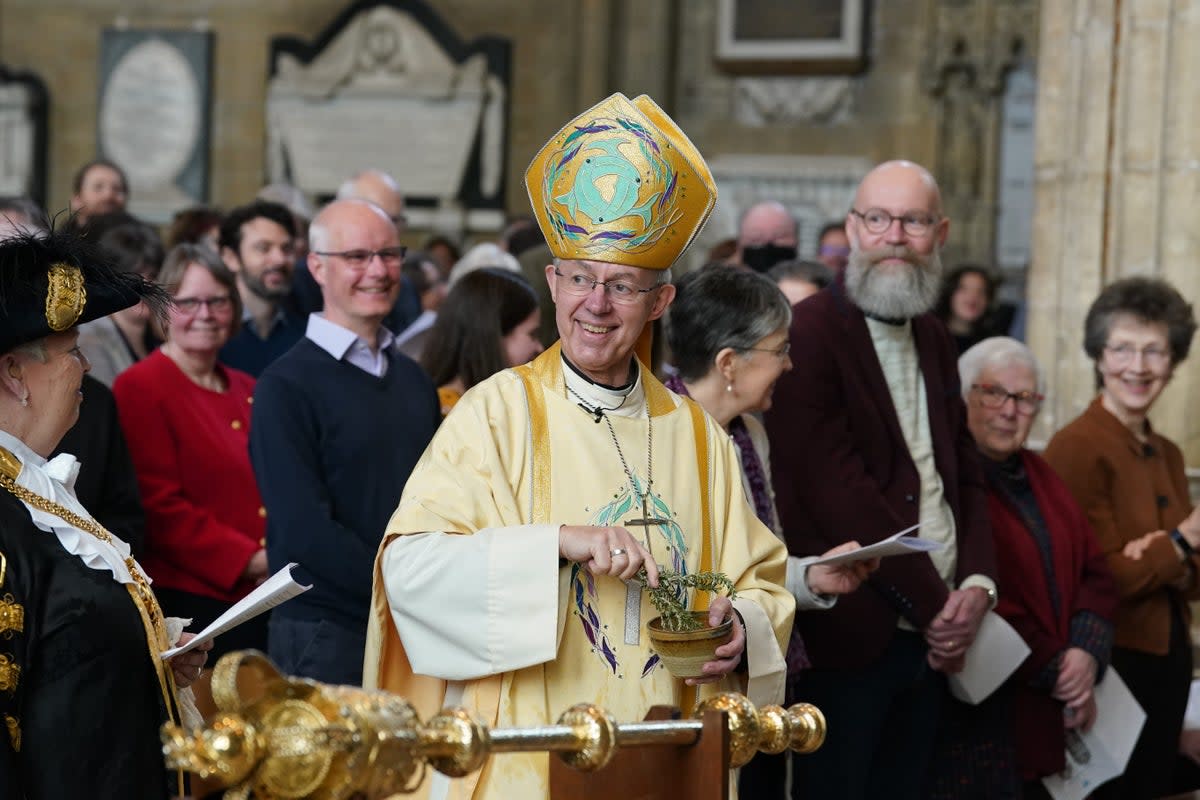Church a ‘force of life and hope’, says Archbishop of Canterbury

The Archbishop of Canterbury has said the Church of England provides a “force of life and hope” against threat as he hailed its work in facilitating peace in his Easter Sunday sermon.
The Most Rev Justin Welby told Canterbury Cathedral of the Church’s work in Mozambique and Northern Ireland.
He said: “Christians worked with the UN to set up 200 peace clubs in partnership with Muslim leaders so as to provide a force of life and hope against the death cult of Isis operating in Cabo Delgado, the northern part of Mozambique.”
The archbishop went on to reference the Belfast or Good Friday Agreement signed 25 years ago, highlighting the “extraordinary and courageous work” of those involved in reaching it.
“It was churches and monasteries compelled by the living Christ who spent years before 1998 secretly, at huge risk, building the bridges that opened the way for the first ceasefires and considerations of peace,” Mr Welby said.
He added that the recent Windsor Framework was a reminder that reconciliation and peace are not “one-off events” but “long journeys requiring determination, stamina and faith”.
Mr Welby told the congregation: “The ultimate test of a leader or of a nation is that justice and righteousness are the victors of conflict.”
He referenced the Church’s response to historical investment in slavery, insisting it is not driven by “ambivalent wokery” but “the living presence of Christ”.
The congregation heard about the Church Commissioners’ plan to set aside £100 million for a social impact investment fund, which would be used to help local and international communities affected by the body’s past investment in slavery.
“The living reality of Christ compels us to consider and respond to those actions,” he told churchgoers.
“It is not postcolonial guilt, ambivalent wokery, it is the living presence of Christ.”
Mr Welby said people risk personal safety to go to church “because Jesus is alive”.
Referencing a New Testament reading before the sermon which was given in Urdu, the archbishop said: “In Pakistan today there are churches who meet in the fear of being shot or bombed or harried or in other ways tortured and hurt, and why do they meet? Why do they meet? Because Jesus is alive.”
He added: “We believe it because although the global church has shown its sin and foolishness and although the global church has been a place of suffering again and again since its birth 2,000 years ago, it has found renewal and new courage.”
Reflecting on the war in Ukraine, as well as other conflicts around the world, the archbishop told congregants that “we must not lose heart” in the face of conflict.
He added that this is because “true peace is no aimless daydream, but a reality offered because Christ was raised from the dead”.
The archbishop said that “those who oppress and subjugate others will face divine justice” and that while “cruel and oppressive rulers” may look as though they are only becoming stronger, they will “vanish”.
“Injustice and brutality may seem to triumph in our short lives on earth, cruel and oppressive rulers might look as though they only get stronger,” he said.
“Yet they will vanish. The power of the resurrection is infinitely greater than they are.
“Even in our lifetimes, as we are surrounded by fears, even by evil, we know that those who oppress and subjugate others will face divine justice.
“We know with certainty that policies that cause suffering and pain will fall away.”
The service began with the congregation joining the choir in singing the Easter hymn Lyra Davidica and a series of prayers and readings led up to the archbishop’s sermon.
When Mr Welby finished preaching, there was the breaking of the bread and distribution of communion.

 Yahoo News
Yahoo News 
